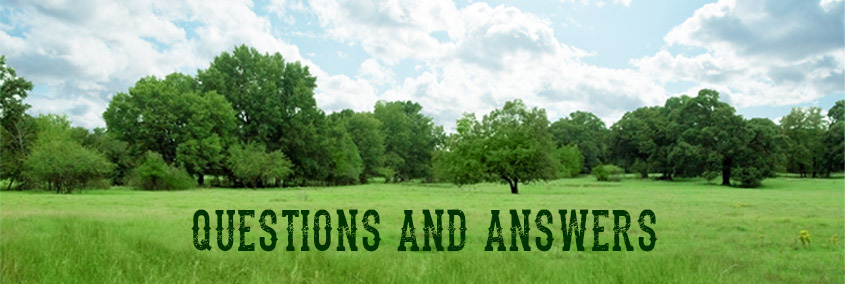Who are we and what are we about?
Check out the links below!

Over the many years of storing meats there have been occasions where a pack was "lost" in my home freezer for years. The longest period that I recall was right at four years. It was a large Rump Roast I believe. The worn out wrapping had holes in it and the self-defrosting freezer did a pretty good job of freezer burning exposed surfaces on the roast. Well, we stuck the roast in a covered pan and cooked it. Low and behold, the roast came out looking like any other roast.
We hear about this all the time. People are afraid they may be eating blood. They just don't understand that well done meat is the same as overcooked vegetables. Nutrient levels go down and the meat is less palatable. This is especially true with steaks. Let's keep as much juice in our steaks as possible.
Here's what Marilyn vos Savant says about this:
Q: My problem with the items is all of it basically. Just too much fat. It's like buying fat with meat and not the other way around. The bacon, pork ribs and the hamburger meat were so fatty which was surprising, coming from a place that sells organic meat. We buy organic, grass fed meat from Whole Foods, Sprouts, Trader Joe's and American Farmer's Network and have never ever seen so much fat content in their meat. I understand about the body's need for good fat but too much of it is not good either.
Some consumers are very concerned about possible harmful plant-based substances that might be in the meats they eat. For instance gluten is a protein in grains. All grains contain proteins but people with celiac disease and other gluten allergies only react to the form of gluten found in wheat, spelt, kamut, triticale, barley, and rye. Therefore those consumers are concerned that gluten might be in the meat of animals that were fed those grains. In addition, other consumers are very concerned about phytoestrogens and lignans in soy being in the meats of animals
Q: I am looking for "heritage," "organic," "grass fed" beef and chicken. Is that what you sell?
Q: Hi, I wanted to know how the nutritional quality of the soil/grass itself affects the nutritional quality of the meat (other than omega 3) and do grass-Fed meat ranchers like yourself monitor minerals and so forth in their grasslands. Great Website by the way! Looking forward to ordering.
Q: Hello! My husband and I are in the process of learning about grass-fed verses grain-fed meat. We have spoken to our local Whole Foods market and read your web site. Thank you for taking the time to put together the information on your site!
Q: I hope that you will be able to help me. I am in the process of switching to grass fed beef (and yes, I like the taste). I understand that it has higher CLAs, is rich in omega 3, and is lower in fat and calories. I log my food and have not been able to find basic data for grass fed beef (ie, calories, fat, saturated fat, protein) I realize that every cow is different but I am hoping that you have some numbers or can point me to a site that contains this basic data. My preferred choices in cuts are tenderloin, flank, and rump roast.
Q: I purchased grassfed beef from someone else and the meat tasted terrible. I can usually put up with a terrible taste but this was horrible. My husband and son asked what was wrong with the meat, it tasted terrible. They said do not use that meat again.
I'm so afraid maybe your grassfed meat is terrible tasting. You spend a good price on the meat and it is horrible. Is there a guarantee of money back if the meat tastes bad, not spoiled?
I thought I would e-mail you and ask you if you have a guarantee if the meat tastes terrible.
Q: Out of curiosity, why do the people who age beef two weeks to 20 days or more brag about it like it's a good thing? “XYZ” Beef ranchers have been doing this (raising grass-fed beef) for years and I think they're one of the ones with 21-day dry aging. With all of their experience, it made me think that was the way to go. Then I read where another major vendor, “ABC” Beef, uses wet aging and talks dry aging down. See? CONFUSION! What do you do and why?
Q: I found out about your company through a friend on Facebook. I have a corn allergy so grassfed meat is something I have been looking for. However, I have questions as to how the animals are slaughtered and how the processing equipment is cleaned and how the meat is packaged. Especially problematic: Lactic acid (for cleaning equipment) and citric acid (preservative used in soaker pads) are most often made from corn and will make the meat inedible for a corn allergic person.